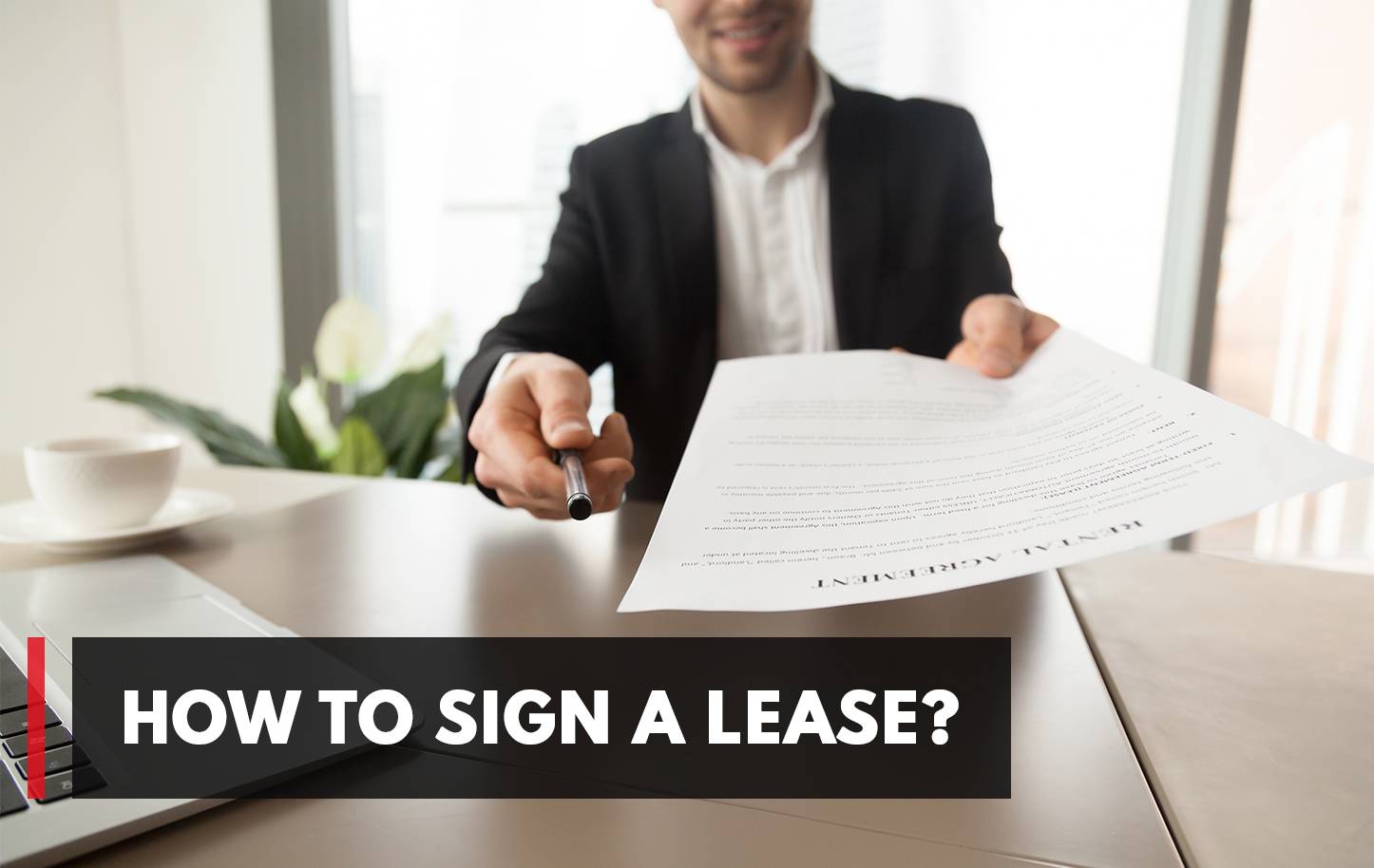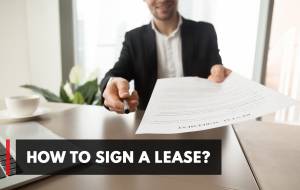
How to sign a lease?
Published At: Sun, 07/04/2021 - 12:33
What is a lease agreement?
A rental lease agreement is a set of rules that regulates the relationship between the owner and the tenant. The more detailed and accurate it is, the easier it is for the parties to understand the agreement and resolve disputed situations. This article will tell you how to correctly draw up a lease agreement and what factors you should pay attention to.
First, it is necessary to indicate that occupation of the property is being transferred for temporary use for a certain amount of time to a specific person or business. Often a commercial rental lease is considered binding for however long the lease term is - usually one to several years. If tenants accept the terms, then they agree to pay a mandatory monthly rent. It’s always a good idea to have a written lease agreement, even if you occupy the space only for a few months.
The parties to the agreement are the lessor and the lessee. The lessor is the property owner, also commonly referred to as the landlord, and it is necessary to confirm the ownership of the property in the contract. The lessor can also be a person or organization authorized by a power of attorney from the property owner. The lessee, also known as a tenant, is the party who will be given the right to occupy the property in exchange for monthly rent.
Both parties must sign the lease contract. Tenants have the right to refuse to sign a contract if terms cannot be agreed upon.
Lease terms
Lease agreements are of two types: short-term (up to 1 year) and long-term (more than a year). A lease term must be stated in the contract, with a commencement date and expiration date, regardless if you occupy a workplace for several weeks, months, or years.
Rent and associated costs
The rental rate of the agreement must be clearly indicated with instructions on when and how the payment should be made. In addition, it should specify what other costs the tenant is responsible for.
Oftentimes, the amount of money you pay to rent and occupy a property does not include all the actual expenses that come with your lease. Depending on the type of lease, the contract may oblige you to pay any additional costs like utilities,cleaning services, security, parking, etc. A Triple Net lease will require tenants to pay a monthly base rent, plus their portion of CAM (common area maintenance) fees, property taxes, janitorial services, and other fees. A Modified Gross lease will require tenants to pay rent, plus some, not all, associated costs. A Full Service Gross lease will allow the monthly base rent payment to be inclusive of all financial obligations.
Of course, other expenses that are not always included in a lease agreement are things like parking services, security, and cable/internet providers. These are also expenses that tenants should consider.
Renewal and termination procedure
Make sure that the terms of the renewal are clearly spelled out in the contract. It should be indicated that you have the right to renew the lease for a specific amount of time and it should state the deadline by which you must exercise that right. It is essential to add that the parties can terminate the contract only by mutual agreement. If the landlord insists on the right of unilateral termination, meaning only one party is able to terminate the lease, it’s recommended that you consider your readiness to be able to accommodate that kind of situation before you agree to it. Be aware of when notice deadlines are and of the contingencies surrounding this clause.
Do you need to hire a professional lawyer?
It is always recommended that you hire a trusted lawyer to review your lease agreement of six months or longer. Much of the nuances and jargon within a lease contract are of legal significance. Referring to a licensed attorney who is familiar with contracts, landlord and or tenant rights, or real estate laws will be beneficial in reviewing your contract. Remember that every state varies in leasing laws so it is suggested that you confirm that your lease agreement is law-abiding.
Lease copies
Everyone who signs a lease must receive a copy of the lease, including the property owner(s) and tenant(s). Tenants should keep their documents in a safe place that is easily accessed in the event that the lease agreement needs to be considered. Some property managers or landlords may charge the tenant a fee to obtain an additional copy of the lease. In the case of concluding e-contracts, copies of the lease can be stored online and shared with tenants for access at any time.
Confirm condition of the space
Not every property is suitable for all businesses at the start of its vacancy. It may need to be cleaned, repaired, and or built out entirely to suit your company. A tour of the space with a thorough inspection is needed before you decide to move in. You should make sure to note any pre-existing damage that the space may have. These can be broken furniture, cracks in the wall, damaged countertops, torn carpets, etc.
You should state these pre-existing damages in the lease. By doing so, you ensure that you are not responsible for it at the expiration of your lease term. If you don't make sure all existing damages are listed on your lease agreement, it may result in deductions from your security deposit, so make sure to include it all on the lease before signing it.
After you have agreed on all terms and have obtained a preliminary agreement, read the contract, forward it to an attorney, and reflect on it once again. A specialist from My Perfect Workplace is always available to help you in all stages, from finding the best workplace for you to executing the lease agreement.


